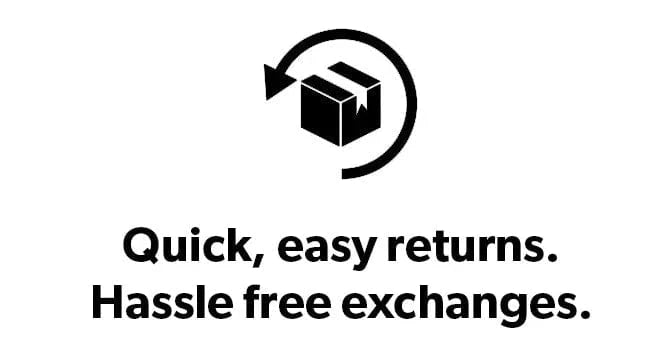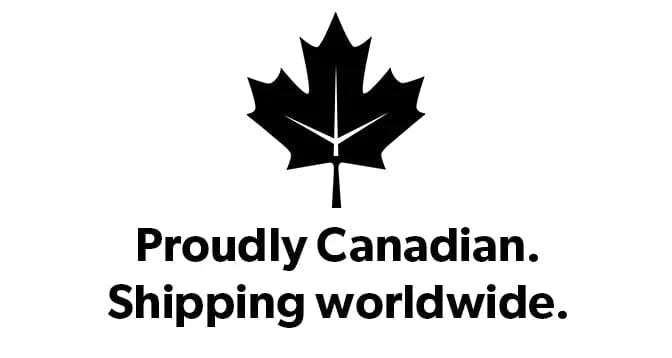Bauer Nexus Tracer Intermediate Hockey Stick
- 21 left in stock
Free Shipping Over $200

Fast Easy Returns

Best Price Promise

Shipping Limited to Canada
"Bauer wanted to create a stick that is “lighter, better balanced, allows players to more easily load any kind of shot with more velocity, all with added durability,” and the feedback from players had been overwhelmingly positive."
Intro & New Features
Their top-of-the-line Nexus stick for the 2024 season, the Nexus Tracer, takes inspiration from various designs of the past that worked, along with some new additions to bring you the best Bauer has to date. The Nexus Tracer stick is equipped with an ER Spine shaft construction, ACL 2.0 carbon fiber, TeXtreme carbon reinforcement, and a new ConnecTech blade, all designed to give you the best feel and connection to your stick.
Stick Flex Profile
The Nexus line is officially taking the full mid kick spot of Bauer hockey sticks, which they previously shared with Supreme. Mid kick is a solid stick for players who often find themselves doing just a bit of everything during the game. The Nexus Tarcer is ideal for those who want both big shots and a reliable release. Mid kick is made to be versatile in all aspects on the ice.
Shaft Construction & Stiffness
The Nexus Tracer had a lot of advanced technologies put into its shaft. To start, the shaft is made of ACL 2.0 UD carbon, which is known for its light weight and incredible strength. ACL 2.0 can be credited with the Tracer’s overall weight reduction, which is 25g lighter than the Geo (Senior). As the name implies, Bauer’s aim with the Tracer was to craft a stick that really connects to your hand and feels natural. For that, they’ve reintroduced Nexus’ distinct ER Spine technology, which is a lightweight, five-sided shaft geometry that promotes that natural hand connection you want.
Blade Construction
The Tracer stick uses the same blade core as the previous Geo, just with an added feature: ConnecTech. This technology is essentially a responsive rubber layer placed inside the stick for a better dampening effect, which then lessens impact force and makes the puck easier to control. Unlike the R-Lite System, ConnecTech can be found throughout the stick and not just in the blade.
In addition to ConnecTech, the Nexus Tracer features TeXtreme spread tow carbon reinforcement. TeXtreme is well known for its adaptability, durability, and lightweight properties, which is why it has been used in Bauer hockey sticks for over a decade.
Graphics
One of the goals with the Nexus Tracer was to keep shooting and control simple and efficient for the user. To reflect that, Bauer went with a simple blue and black colouration, with the new blue Tracer logo and silver Bauer text logo right at the mid kick point.
Grip
The Nexus Tracer uses a soft gloss grip, which works well with the ER Spine to balance control and freedom of movement for your hand.
Blade Patterns, Flex & Stick Length
The Bauer Nexus Tracer Intermediate Hockey Stick is available in the following blade patterns: P88, P92, P28, and P90TM.
P88 is a relatively traditional curve. A popular choice in the past, it excels greatly in stickhandling, quick wrist shots, and controlling snap shots.
P92 is the best blade pattern for all-around play, with a mid-curve style. It is great at handling the puck in small spaces, including face-offs.
P28 is a much more aggressive stick pattern, used often by elite players. This blade curve specializes in quick and accurate shots, but it can be a bit difficult to get used to since it is also very good at raising the puck.
P90TM takes elements from the P28 but is just a bit taller.
65 Flex (P88, P92, P28, P90TM), L/R - 58”
55 Flex (P88, P92, P28, P90TM), L/R - 58”
"Bauer wanted to create a stick that is “lighter, better balanced, allows players to more easily load any kind of shot with more velocity, all with added durability,” and the feedback from players had been overwhelmingly positive."
Intro & New Features
Their top-of-the-line Nexus stick for the 2024 season, the Nexus Tracer, takes inspiration from various designs of the past that worked, along with some new additions to bring you the best Bauer has to date. The Nexus Tracer stick is equipped with an ER Spine shaft construction, ACL 2.0 carbon fiber, TeXtreme carbon reinforcement, and a new ConnecTech blade, all designed to give you the best feel and connection to your stick.
Stick Flex Profile
The Nexus line is officially taking the full mid kick spot of Bauer hockey sticks, which they previously shared with Supreme. Mid kick is a solid stick for players who often find themselves doing just a bit of everything during the game. The Nexus Tarcer is ideal for those who want both big shots and a reliable release. Mid kick is made to be versatile in all aspects on the ice.
Shaft Construction & Stiffness
The Nexus Tracer had a lot of advanced technologies put into its shaft. To start, the shaft is made of ACL 2.0 UD carbon, which is known for its light weight and incredible strength. ACL 2.0 can be credited with the Tracer’s overall weight reduction, which is 25g lighter than the Geo (Senior). As the name implies, Bauer’s aim with the Tracer was to craft a stick that really connects to your hand and feels natural. For that, they’ve reintroduced Nexus’ distinct ER Spine technology, which is a lightweight, five-sided shaft geometry that promotes that natural hand connection you want.
Blade Construction
The Tracer stick uses the same blade core as the previous Geo, just with an added feature: ConnecTech. This technology is essentially a responsive rubber layer placed inside the stick for a better dampening effect, which then lessens impact force and makes the puck easier to control. Unlike the R-Lite System, ConnecTech can be found throughout the stick and not just in the blade.
In addition to ConnecTech, the Nexus Tracer features TeXtreme spread tow carbon reinforcement. TeXtreme is well known for its adaptability, durability, and lightweight properties, which is why it has been used in Bauer hockey sticks for over a decade.
Graphics
One of the goals with the Nexus Tracer was to keep shooting and control simple and efficient for the user. To reflect that, Bauer went with a simple blue and black colouration, with the new blue Tracer logo and silver Bauer text logo right at the mid kick point.
Grip
The Nexus Tracer uses a soft gloss grip, which works well with the ER Spine to balance control and freedom of movement for your hand.
Blade Patterns, Flex & Stick Length
The Bauer Nexus Tracer Intermediate Hockey Stick is available in the following blade patterns: P88, P92, P28, and P90TM.
P88 is a relatively traditional curve. A popular choice in the past, it excels greatly in stickhandling, quick wrist shots, and controlling snap shots.
P92 is the best blade pattern for all-around play, with a mid-curve style. It is great at handling the puck in small spaces, including face-offs.
P28 is a much more aggressive stick pattern, used often by elite players. This blade curve specializes in quick and accurate shots, but it can be a bit difficult to get used to since it is also very good at raising the puck.
P90TM takes elements from the P28 but is just a bit taller.
65 Flex (P88, P92, P28, P90TM), L/R - 58”
55 Flex (P88, P92, P28, P90TM), L/R - 58”
| Features | Description |
|---|---|
| Level | Elite |
| Flex Point | Mid Kick Point |
| Shaft Construction | ER Spine | ACL 2.0 | Connectech |
| Blade Construction | Connectech | TeXtreme | ACL 2.0 |
| Material | TeXtreme |
| Length | 58" |
| Grip | Glossy Grip |
| Blade Patterns | P28 , P92 , P88 , P90TM |
| Warranty | 30 Days |
Curve Comparison Chart
Curves, or blade patterns, play a large part in a hockey player's game when it comes to sticks. The right curve enhances shooting, passing, and stickhandling, so finding what works best for you is crucial.
| Click links below to view blade patterns. | |||
P29 | P92, P92M | W03 | TC2, TC2.5 |
P88 | P88 | W88 | IC, MC, MC3 |
P28 | P28 | W28 | TC4 |
P30 | P14 | W71 | T1, T3, T5 |
- | PM9 | - | MC2 |
P20, P05 | - | W05 | HCS, HCR |
P90TM | P90TM | - | - |
Hockey Player Stick Sizing & Information Guide
Selecting the right stick for you.
When it comes to sizing a Hockey Stick, the length tends to be a preference. Sticks come in Senior, Intermediate, Junior and Youth lengths with corresponding flex options. You will need to consider your weight and height or the person you are buying for in order to choose the correct size. Intermediate, Junior, and Youth hockey sticks will have smaller shaft dimensions, making them easier for young players to hold and control.
A stick can always be cut down in length, and will usually be cut down for kids. However, selecting a hockey stock too long in length or the wrong flex can hinder performance. For kids, junior, intermediate and senior all come in roughly standards length. In some cases, each Junior flex will be a different length of stick. Look at each and compare the height of the player you are buying for.
Flex can be tricky to pick as every hockey player is different and has their own preference. You can think of flex numbers as pounds of force. Having too stiff or too whippy a stick can hinder performance in their own ways.
Personalizing your stick length.
As mentioned before, length is very much personal preference. To determine a benchmark height, stand with your shoes off and the stick against your body with the toe on the ground. As a general rule of thumb we recommend sticks to come up to between your mouth and nose. For kids, or players who are still growing, the maximum height we recommend is eye level.
Mark the shaft of the stick where the height is desired and cut it down to length. Make sure to re-insert the plug from the top to prevent an open composite end at the top of your stick.
When cutting a stick down, keep in mind that the shorter you cut a stick, the stiffer it becomes. As a general rule, a stick increases 3% in stiffness for every inch cut off. If you are unsure how much you want to cut off, take the least amount first so that you can always cut more if necessary. Cutting the stick multiple times will not affect the sticks construction.
Information to Consider
Flex Options
Players want to be able to fully flex the stick. If a stick is too soft, the resulting shot will be inaccurate and weak. If a stick is too stiff, there will be no power behind the shot. Think of the flex number as pounds of force. This is the number of pounds that need to be put into the stick to fully flex it.
Curve Options
In most cases, sticks are offered in multiple blade curve pattern options. Please refer to our blade pattern charts for more information regarding the patterns available.
Kick Point Options
A Mid-kick stick will have a stiffer taper so that it flexes more in the middle of the shaft. These sticks have a longer loading time but offer a more powerful shot, perfect for players taking a lot of slap shots.
A Low-kick stick will have a stiffer middle of the shaft and softer taper so that it flexes at the bottom of the shaft closer to the blade. These sticks will have a much quicker release perfect for quick snap shots and writs shots.

















